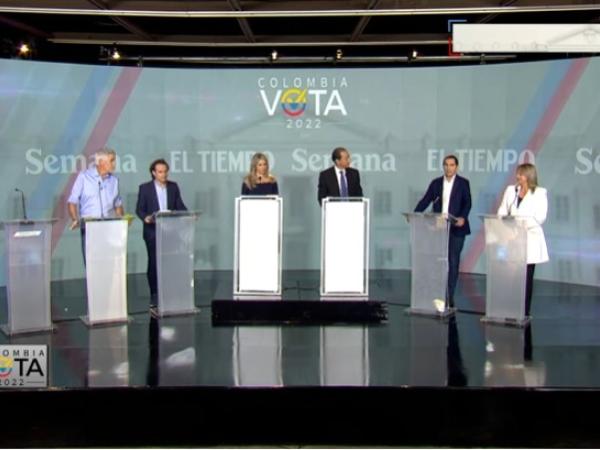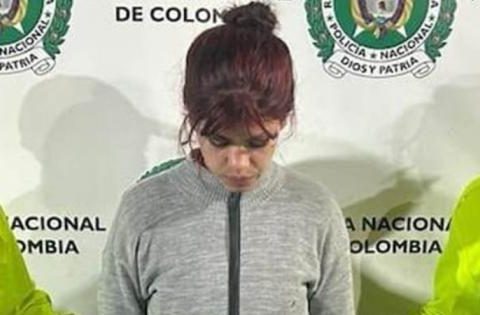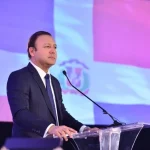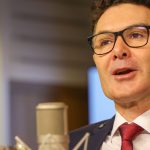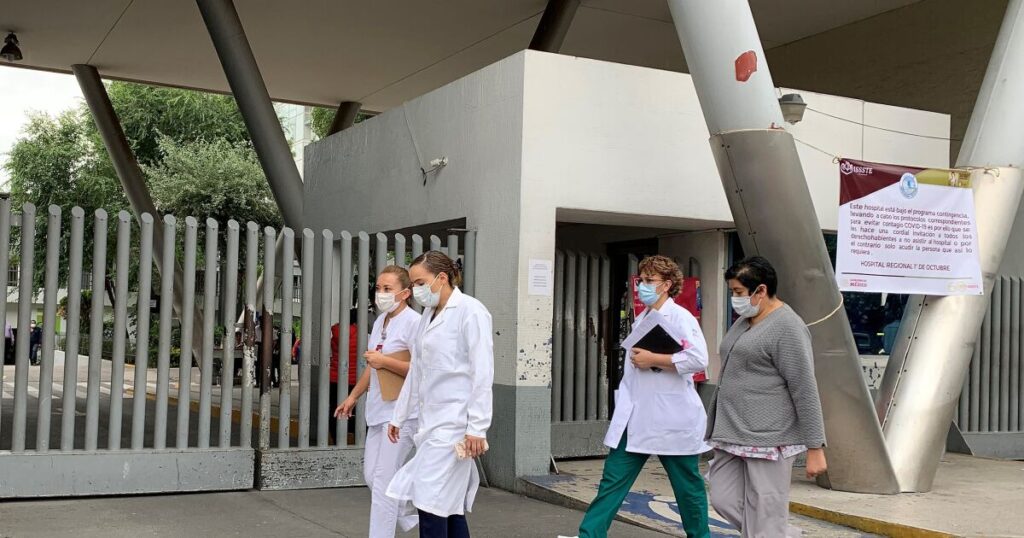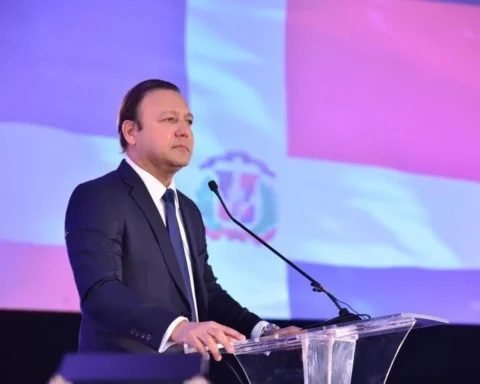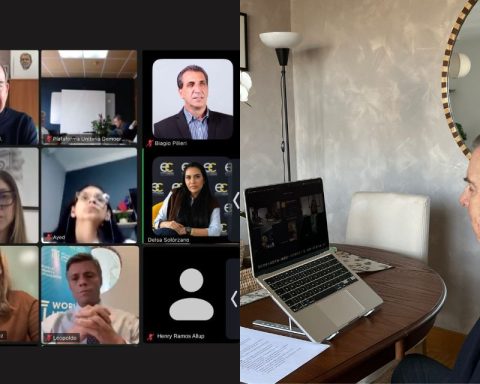The candidates for the Team for Colombia coalition met in a debate organized by El Tiempo and Revista Semana. There they presented their key proposals in economic terms.
The meeting was attended by Enrique Peñalosa, Aydeé Lizarazo, Federico Gutiérrez and David Barguil, and the pre-candidate Alejandro Char was absent.
RUSSIA-UKRAINE WAR
Aydeé Lizarazo, candidate for the Mira party, acknowledges that Colombia has suffered from war for a long time. For this reason, she called for diplomacy and the need for “a multilateral agreement so that this war will not advance.”
Faced with the position on the conflict between Russia and Ukraine, the conservative candidate David Barguil assured that it is a complex situation and that in the face of this “we must be on the side of respect for freedoms and the defense of sovereignty.”
Barguil added that this situation could have economic implications for Colombia given the possibility of a price increase due to a shortage of inputs that our country imports from Russia and that therefore “we cannot be indifferent” and must “assume a position” that defends freedom.
For his part, Federico Gutiérrez rejected the Russian invasion of Ukraine. “Democracies and freedoms must be cared for and defended,” he assured. The candidate said that interference should be rejected and support those countries that defend democracy.
In turn, candidate Enrique Peñalosa said that Colombia must avoid and be careful to become a token in the conflict between Russia and Ukraine.
“What we cannot do is enter to aggravate the tensions due to the war between the US and Russia. We must guarantee Venezuela that we are not going to intervene in any way to overthrow Maduro, who is an ally of Russia,” Peñalosa added.
According to the candidate, what “we have to do is what works for Colombia” and stay out of the international conflict.
RELATIONS WITH NICOLÁS MADURO
Pre-candidate Federico Gutiérrez assured that democracies are easily put at risk, such as in Venezuela. He assured that he would not reestablish relations with President Nicolás Maduro, but rather help the Venezuelans who are in the territories. “Venezuelans are victims of Maduro,” he pointed out.
Along with this, he highlighted the idea of maintaining immigration status for Maduro’s victims. Gutiérrez considers that it is a problem of not knowing how to resolve conflicts. Therefore, he believes that it is key to reject the behavior of dictatorships.
Gutiérrez highlighted the complexity of life on the border, marked by informality, drug trafficking and violence.
However, Lizarazo assured the need to reestablish trust with neighboring countries, based on a bilateral agenda. This is how democracy is restored in Venezuela. For this, there must be a diplomatic rapprochement with the Venezuelan government. “You have to look at the people, the Venezuelans,” he assured.
Candidate David Barguil indicated that he would not maintain diplomatic relations with the president of Venezuela, Nicolás Maduro, because if he became president “we are not going to give a criminal dictatorship a note of oxygen.”
He added that the Maduro government has impoverished the Venezuelan people and therefore will not maintain dialogue until there is a change of position by the regime.
Meanwhile, the former mayor of Bogotá, Enrique Peñalosa, stated that he would reestablish diplomatic relations with the president of Venezuela, Nicolás Maduro, since it is necessary to look at how to minimize the risk of the neighboring country.
“What we must win is the war here, impose security here. To weaken criminals and illegal groups in Colombia, we must make agreements with Venezuela. Do things that benefit them and thus they will do things that benefit us”, said Peñalosa during his speech on this topic.
DECRIMINALIZATION OF ABORTION
Lizarazo expressed his disagreement with decriminalization, although he respects the decision of the Constitutional Court. He clarified that for her, life begins from conception and that from her religion she does not share the regulations. Therefore, at 24 weeks he considers that there is already a living being inside the mother’s womb.
It highlights the importance of sex education and bringing it to the most vulnerable people. His focus is on prevention.
Regarding the issue of his position with the decriminalization of abortion up to 24 weeks, the candidate David Barguil said that the Court’s decision has hurt him a lot and that in his Government he would implement an agreement for life.
“I do not share the Court’s decision on abortion and I will not allow the life of innocent beings to be threatened.”
He added that he will lead a referendum so that the Colombian people speak out. “There are politicians here who defend only a few lives and we will defend all lives,” he concluded.
Now, Gutiérrez also said he did not agree with the decriminalization. He clarified that under the three grounds, established in 2006, he said he was in favor. For him, it is key that the State supports women who have an unwanted pregnancy through health, education and economically. Along with this, he pointed out that it is an issue for men and women.
For ‘Fico’ there are social gaps between women who cannot access education, planning methods and others.
Regarding this issue, Enrique Peñalosa said that the Court “is not inviting women to abort. What needs to be done is to provide much more education and training and require the EPS to provide all methods of contraception”.
Although he pointed out that he considers that 24 weeks is “exaggerated”, he said that everything must be done to prevent abortion and pointed out that “it is not fair that poor women who have an abortion are prosecuted.”
INFLATION
For Federico Gutiérrez, one of the biggest problems of vulnerable households is the cost of food. The candidate explains that the salary increase is not enough to alleviate this increase.
“We are experiencing the consequences of the blockades that were experienced last year,” he said. Referring to the departments where strikes were registered, they are those that, according to him, have more inflation.
Among his proposals is that Colombia be an agricultural pantry. To do this, it is necessary to promote investment in the countryside, use royalties, take advantage of irrigation districts, land titling and access to credit by farmers. “The bet has to be the field, so that we have control of the food,” he said.
According to candidate David Barguil, 60% of the income of Colombians who earn a minimum wage goes on food, which is why, if he becomes president, his government would implement a structural policy based on three axes: reduction of food prices, through national production; investment in rural roads to make the countryside more productive, and finally access to cheap credit for Colombians to boost the Colombian economy.
For Aydeé Lizarazo, who was raised in the countryside, she says that the look has to be in the rural, making it more attractive. One of her proposals is that young people undertake in the field, for example through credits.
“The Agrarian Bank has to become a friend of the peasant,” he pointed out. Also, she said that tariffs on agricultural products should be suspended. He proposes the creation of a regional seed bank to guarantee food security. Finally, the road infrastructure works are key as one of the points of the agricultural reform that allows the peasants to reach the big cities.
Finally, the candidate Enrique Peñalosa stated that raising interest rates to curb inflation is very serious, since a high rate can affect the supply of what we produce.
“One clear thing that must be done here is to support our farmers so that they have lower production costs,” he said in his speech in the face of rising prices.
BRIEFCASE
